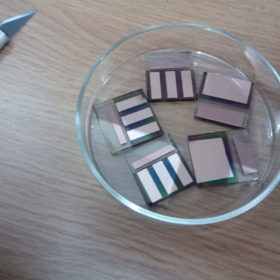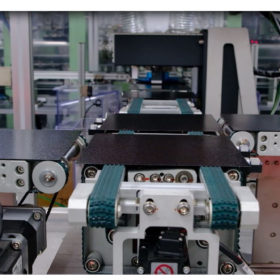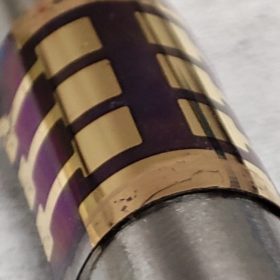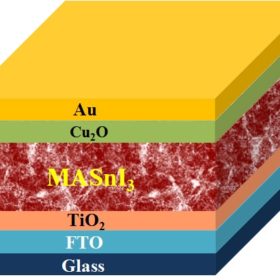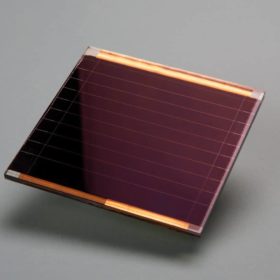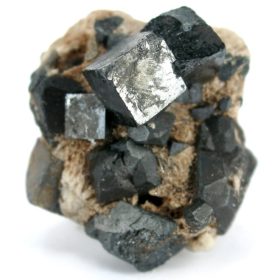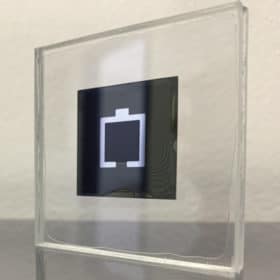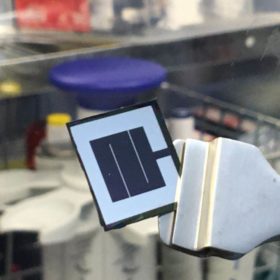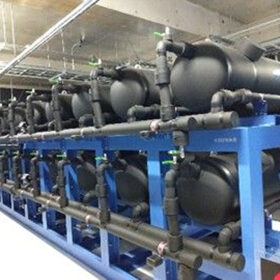IIT Bhilai researchers develop large-area perovskite solar cell with copper metal contact
An Indian research group has built a perovskite cell that has a metal contact based on copper, instead of expensive gold. The device showed almost the same efficiency as a cell developed with gold metallization but its stability was much lower. In order to overcome this issue, the scientists suggest using a metal contact made of a thin layer of gold and a thicker, overlying copper layer.
1366 Technologies merges with Hunt Perovskite Technologies
U.S. thin-film manufacturer First Solar and Bill Gates-owned Breakthrough Energy Ventures (BEV) are among the investors in the new company, which is called CubicPV and is expected to develop multi-junction perovskite solar cells with efficiencies of around 30%.
Flexible perovskite solar cell with 21.0% efficiency, high durability
International researchers have placed a low-dimensional metal-halide perovskite capping layer on top of a metal-halide perovskite film to provide hermetically sealed encapsulation and enhanced photocarrier properties. The cell has a short-circuit current density of 23.5 mA.cm2, an open-circuit voltage of 1.15 V, and a fill factor of 0.779.
Lead-free perovskite solar cell with potential efficiency of 27.4%
Scientists in India have simulated a perovskite cell based on methylammonium tin iodide which they claim may achieve a short circuit current density of 25.97 mA per square centimeter, an open-circuit voltage of 1.203 V, and a fill factor of 87.79%. The cell is composed of a fluorine-doped tin oxide (FTO) substrate, a titanium oxide layer, a methylammonium tin iodide perovskite film, a copper oxide hole transport layer (HTL), and a layer made of gold (Au).
UNIST, EPFL claim 25.6% efficiency world record for perovskite solar cell
Scientists have set a new efficiency record for a single-junction perovskite solar cell at 25.6%. The cell additionally showed operational stability for 450 hours, and intense electroluminescence with external quantum efficiencies of more than 10%.
Indian researchers improve perovskite-based solar cell structure
A numercal study by researchers at India’s Chitkara University has shown enhanced charge extraction in metal-perovskite-metal back-contact solar cell structure through electrostatic doping. The proposed design yielded a 59.4% improvement in power conversion efficiency over previously reported structures.
Modeling the potential of lead-free perovskites
Scientists in India modeled the performance of tin-based perovskite (methylammonium tin triiodide) finding that with careful optimizations the material could achieve efficiencies beyond 28%.
IIT Bombay, BHEL in race to develop high-efficiency solar cells
India’s Ministry of New and Renewable Energy is funding the research to develop high-efficiency crystalline silicon solar cells, including those with passivated emitter and rear contact structure, and perovskites.
India and Israel to work together on perovskite solar cells and lithium sulfur batteries
Low-cost batteries and novel perovskite materials are among the topics selected for joint research and development.
